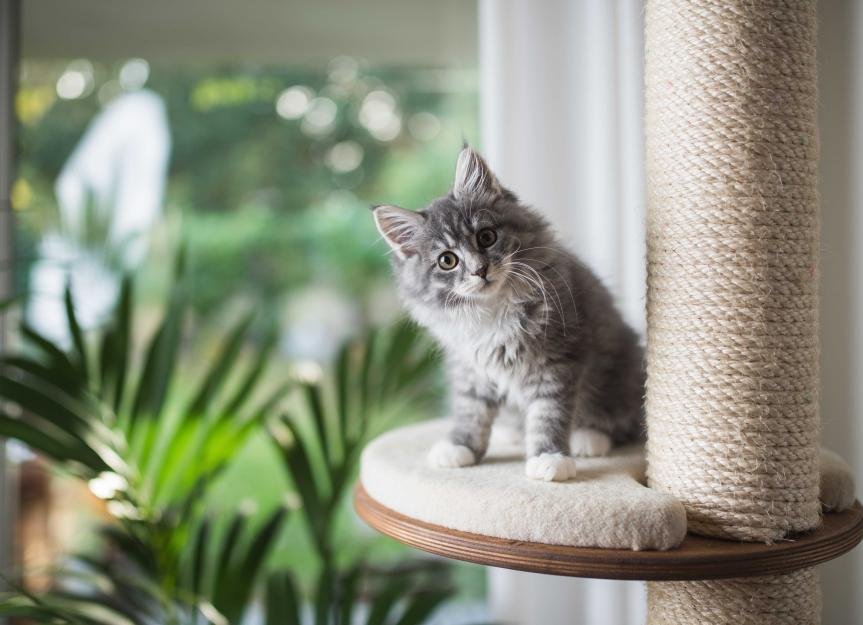Treating and preventing worms in kittens is very important to their health. Most worms live in the intestines, feeding on blood and other materials in the gut. This leads to decreased nutrient absorption, which can interfere with a kitten’s growth and nutrition.
Severe cases of worms in kittens can cause diarrhea, dehydration, and even death. Some species of worms can cause infections or diseases that can also spread to people (known as zoonoses). Because of this, it’s very important for your veterinarian to test and treat your kitten for these parasites.
Here’s what to know about deworming kittens, including how and when to deworm.
How Do Kittens Get Worms?
Worms aren’t restricted to kittens born outside. Even clean, well-kept, indoor-only cats and kittens can get intestinal parasites. Infected mother cats can pass worms through the placenta during pregnancy. Newborn kittens can also get worms from their mother while nursing.
Most mother cats and kittens are exposed to worm larvae and eggs through the environment. Catching small rodents or birds or eating feces are more obvious risks. Microscopic worm eggs can even be tracked in by pet parents from the outside and then ingested by cats while they groom themselves. Fleas can also transmit parasites if they are ingested by a cat.
When To Deworm Kittens
Kittens can be dewormed as early as 3 weeks old, then every two weeks until they are 8 to 9 weeks old. Dewormer for kittens can then be given monthly until they are at least 6 months old.
How To Deworm Kittens
Deworming kittens with a broad-spectrum product, such as pyrantel pamoate, is recommended as early as 3 weeks of age—even in kittens that test negative for parasites and are asymptomatic.
It’s extremely important to protect young kittens from parasites to avoid both long-term health issues and the transmission of disease to other pets and humans in the household. Year-round flea and heartworm prevention is now recommended long-term, even for indoor cats. Many of these products also treat intestinal parasites, so you can be sure your cat is protected through adulthood.
Effectively treating worms in kittens also requires steps to prevent reinfection:
-
-
Keep all pets in the house on flea prevention
-
Avoid feeding cats raw meat
-
Discuss a preventative program with your veterinarian for cats that hunt. Most veterinarians recommend deworming hunting cats two to four times a year.
The Best Dewormer for Kittens
Luckily, there are many safe and effective medications (generally called dewormers) available for treating worms in kittens. Some products are available over the counter, though prescription medications are usually considered more effective and safer—especially for very young kittens. Products are available as liquids, pills, and even topicals; the best choice for your kitten will depend on their size and age.
For kittens over 8 weeks of age, topical products such as Revolution® and Revolution Plus® are excellent choices for routine prevention for fleas and intestinal parasites. If you have difficulty giving your kitten pills, ask your vet about Profender™, which is a topical dewormer that can be used monthly if needed.
Dewormer for Kittens FAQs
When can a kitten be dewormed?
Kittens can be dewormed as early as 3 weeks of age with the appropriate product. Repeat deworming should be continued every two weeks until they are 8 to 9 weeks old and then monthly until they are at least 6 months old.
Can deworming cause diarrhea in kittens?
If a kitten has very high worm counts, killing parasites can occasionally cause an imbalance in the intestines and lead to soft stools or diarrhea. Symptoms should not last long and are not usually severe. Call your veterinarian if the diarrhea lasts longer than 24 hours or if vomiting or decreased appetite occurs.
Can I deworm my kitten myself?
Over-the-counter products are available, but the safest and most effective products are prescribed by veterinarians, who can also guide you with an appropriate routine and help make sure the right parasites are targeted.
Is there a natural dewormer for kittens?
No. Though there are many “natural” deworming products available, these products have not been evaluated for safety or efficacy. In fact, products like apple cider vinegar and garlic can actually be harmful for your kitty. It’s important to deworm your kitten only under the guidance of your veterinarian using FDA-approved products.
References
Gastrointestinal Parasites of Cats. Cornell University Feline Health Center. June 2018.


